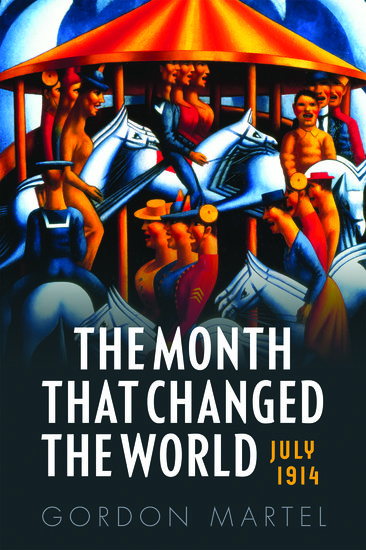July 1914 was the month that changed the world. On 28 June 1914, Archduke Franz Ferdinand was assassinated, and just five weeks later the Great Powers of Europe were at war. But how did it all happen? Historian Gordon Martel, author of The Month That Changed The World: July 1914, is blogging regularly for us over the next few weeks, giving us a week-by-week and day-by-day account of the events that led up to the First World War.
By Gordon Martel
When day dawned on Sunday, 26 July, the sky did not fall. Shells did not rain down on Belgrade. There was no Austrian declaration of war. The morning remained peaceful, if not calm. Most Europeans attended their churches and prepared to enjoy their day of rest. Few said prayers for peace; few believed divine intervention was necessary. Europe had weathered many storms over the last decade. Only pessimists doubted that this one could be weathered as well.
In Austria-Hungary the right of assembly, the secrecy of the mail, of telegrams and telephone conversations, and the freedom of the press were all suspended. Pro-war demonstrations were not only permitted but encouraged: demonstrators filled the Ringstrasse, marched on the Ballhausplatz, gathered around statues of national heroes and sang patriotic songs. That evening the Bürgermeister of Vienna told a cheering crowd that the fate of Europe for centuries to come was about to be decided, praising them as worthy descendants of the men who had fought Napoleon. The Catholic People’s Party newspaper, Alkotmány, declared that ‘History has put the master’s cane in the Monarchy’s hands. We must teach Serbia, we must make justice, we must punish her for her crimes.’

Could calm be maintained? Contradictory evidence seemed to be coming out of St Petersburg. It seemed that some military steps were being initiated – but what these were to be remained uncertain. Sazonov, the Russian foreign minister, met with both the German and Austrian ambassadors on Sunday – and both noted a significant change in his demeanour. He was now ‘much quieter and more conciliatory’. He emphatically insisted that Russia did not desire war and promised to exhaust every means to avoid it. War could be avoided if Austria’s demands stopped short of violating Serbian sovereignty. The German ambassador suggested that Russia and Austria discuss directly a softening of the demands. Sazonov, who agreed immediately to suggest this, was ‘now looking for a way out’. The Germans were assured that only preparatory measures had been undertaken thus far – ‘not a horse and not a reserve had been called to service’.
By late Sunday afternoon, the situation seemed precarious but not hopeless. The German chancellor worried that any preparatory measures adopted by Russia that appeared to be aimed at Germany would force the adoption of counter-measures. This would mean the mobilization of the German army – and mobilization ‘would mean war’. But he continued to hope that the crisis could be ‘localized’ and indicated that he would encourage Vienna to accept Grey’s proposed mediation and/or direct negotiations between Austria and Russia.
By Sunday evening more than 24 hours had passed since the Austrian legation had departed from Belgrade and Austria had severed diplomatic relations with Serbia. Many had assumed that war would follow immediately, but there had been no invasion of Serbia or even a declaration of war. The Austrians, in spite of their apparent firmness in refusing any alteration of the terms or any extension of the deadline, appeared not to know what step to take next, or when additional steps should be taken. When asked, the Austrian chief of staff suggested that any declaration of war ought to be postponed until 12 August. Was Europe really going to hold its breath for two more weeks?
Gordon Martel is a leading authority on war, empire, and diplomacy in the modern age. His numerous publications include studies of the origins of the first and second world wars, modern imperialism, and the nature of diplomacy. A founding editor of The International History Review, he has taught at a number of Canadian universities, and has been a visiting professor or fellow in England, Ireland and Australia. Editor-in-chief of the five-volume Encyclopedia of War, he is also joint editor of the longstanding Seminar Studies in History series. His new book is The Month That Changed The World: July 1914. Read his previous blog posts.
Subscribe to the OUPblog via email or RSS.
Subscribe to only history articles on the OUPblog via email or RSS.
Image credit: Kaiser Wilhelm, public domain via Wikimedia Commons.


Recent Comments
There are currently no comments.